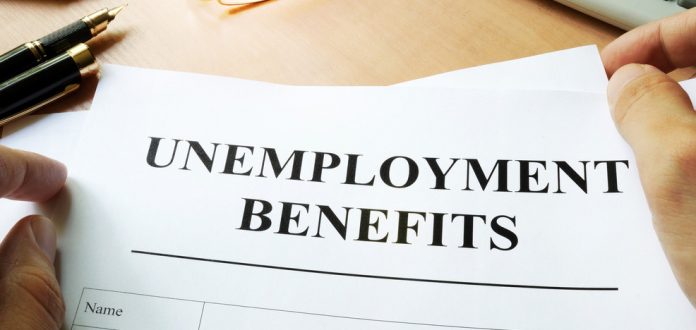More reports are showing that people are taking advantage of the pandemic benefits and refusing to go back to work. According to a poll published by Morning Consult, more than 1.8 million unemployed Americans have turned down jobs over the course of the pandemic and have refused to work due to unemployment insurance benefits.
Among the 1.8 million Americans who passed on a job, 45% cited the generous unemployment benefits as the “major reason” why they did not accept a job offer. Out-of-work Americans were receiving traditional state unemployment benefits as well as federal emergency benefits that offered an extra $300 per week. Those are set to end in September.
In the survey, they asked pollsters if their prior income was better at covering expenses than unemployment benefits. 56% voted that their prior income was better at covering expenses, 23% said that unemployment insurance was better at covering expenses, and 21% voted that they both cover expenses equally well.
The survey was conducted with 5,000 US adults from June 22 to June 25. Morning Consult’s chief economist John Leer said that the UI recipients all possess the “necessary skills and experience” to be offered a job in the current American economy and should’ve had contact with prior employers at some point during the pandemic.
“While health care concerns and childcare obligations are a barrier to many unemployed workers accepting jobs, these workers acknowledge that they would be employed in the absence of unemployment benefits,” Leer said.
When asked to what extent a person turned down an offer to return to work, 14% of pollsters cited child care obligations. 13% voted for reasons due to COVID-19, health/medical limitations, and receiving enough money from unemployment insurance without having to work. There were 12 reasons why UI recipients did not return to work and unemployment insurance benefits made the top 3.
While some states have announced that they will end their federal unemployment benefits programs early, other states are being held up in court. A new report from Bridge Michigan state officials reveals that more than 600,000 Michigan residents did not have the “unemployment eligibility” they thought they did during the pandemic. A majority of them will either have to use different criteria to confirm their “jobless status” or repay the unemployment benefits they owe.
Michigan has dealt with a number of issues in their unemployment agency including repeated system crashes and widespread fraud investigations. The system froze benefits for thousands of Michigan residents for months when the state reached its unemployment peak in April 2020.
People who may lose access to their UI benefits received a letter saying that if they are eligible for benefits then they will be paid. If it is found that they are not eligible then they will have to file an appeal and could possibly face having to repay those benefits. Some states are still fighting to reinstate the benefits. Unemployed works in Ohio, Oklahoma, Indiana, Maryland, and Texas are turning to their state courts to force governors to resume the payments. They filed lawsuits, arguing that the benefits were “improperly halted.”
While child care and continued school closures are a top reason for unemployed people turning down work, it’s clear that the GOP governors ending the federal UI programs made the right call. Instead of keeping small businesses struggling and down, more states need to help them open back up. That starts with finding people willing to work.


